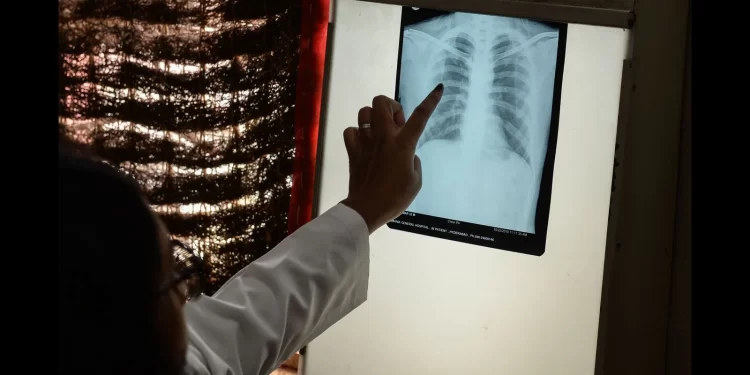Lagatar24 Desk
Pune: Pune is witnessing a concerning rise in Extra-Pulmonary Tuberculosis (EPTB) cases, with nearly half of all tuberculosis cases in the city now falling under this category, according to health experts. The Pune Municipal Corporation (PMC) has reported a total of 4,416 TB cases this year, including 78 fatalities. Significantly, 47% of these cases are classified as EPTB, highlighting a shift in the disease’s impact beyond the lungs.
Tuberculosis (TB), caused by Mycobacterium tuberculosis, is typically associated with the lungs. However, when the bacteria infect other parts of the body—such as the pleura, lymph nodes, abdomen, genitourinary tract, skin, joints, bones, or meninges—it is termed Extra-Pulmonary TB. EPTB can potentially affect any organ, making diagnosis and treatment more complex.
Dr. Prashant Bothe, the city’s TB officer, noted an improvement in TB case notifications, attributing the rise in EPTB cases to advancements in diagnostic techniques. “Detecting EPTB cases is difficult, but with improved diagnostic facilities, more cases are being identified,” Dr. Bothe explained.
In Pune, TB treatment is provided free of cost at PMC-run hospitals. Patients diagnosed by government facilities are enrolled in the National Tuberculosis Elimination Programme (NTEP). Given that poverty and malnutrition are significant risk factors for TB, patients receive ?500 per month during treatment under the Nikshay Poshan Yojana for nutritional support.
Dr. Rajeev Aadkar, a consultant pulmonologist at Ace Hospital, remarked that while EPTB typically accounts for 20 to 25 percent of TB cases, the number has surged due to increased awareness and better diagnostic practices. “The rise in EPTB cases could be due to greater awareness leading to more diagnoses. However, the overall increase in TB cases is also linked to environmental factors and poor lifestyle choices,” Dr. Aadkar added.
As Pune grapples with this upward trend in EPTB cases, healthcare professionals stress the importance of continued awareness, timely diagnosis, and robust treatment to curb the spread of this serious infectious disease.







